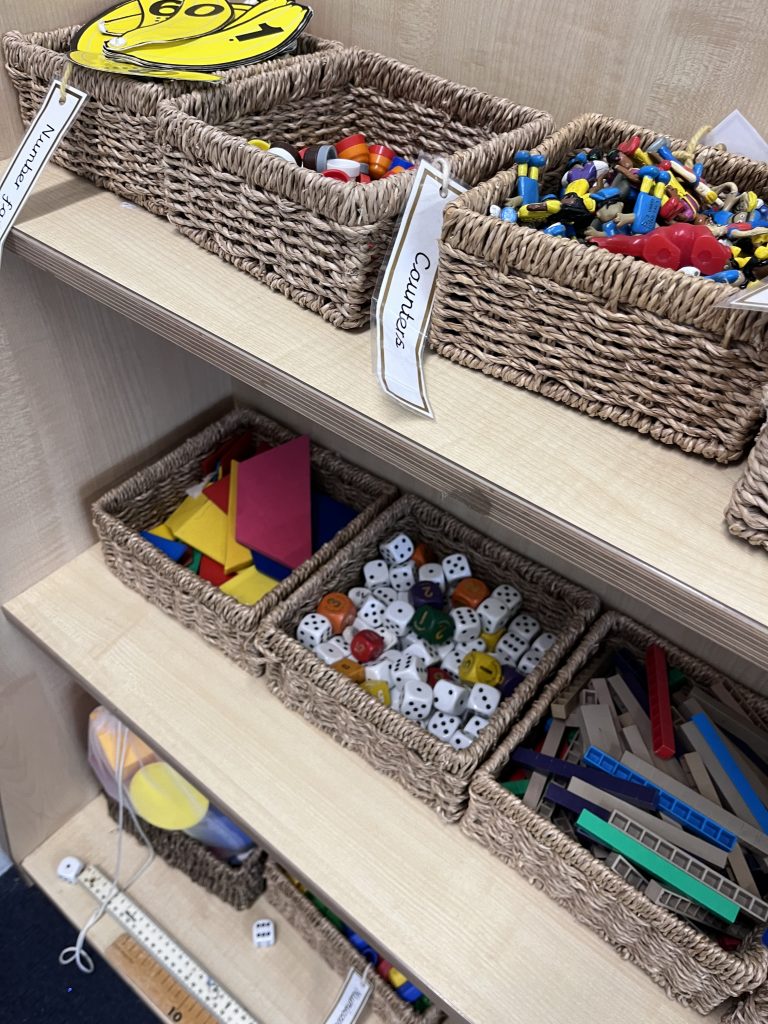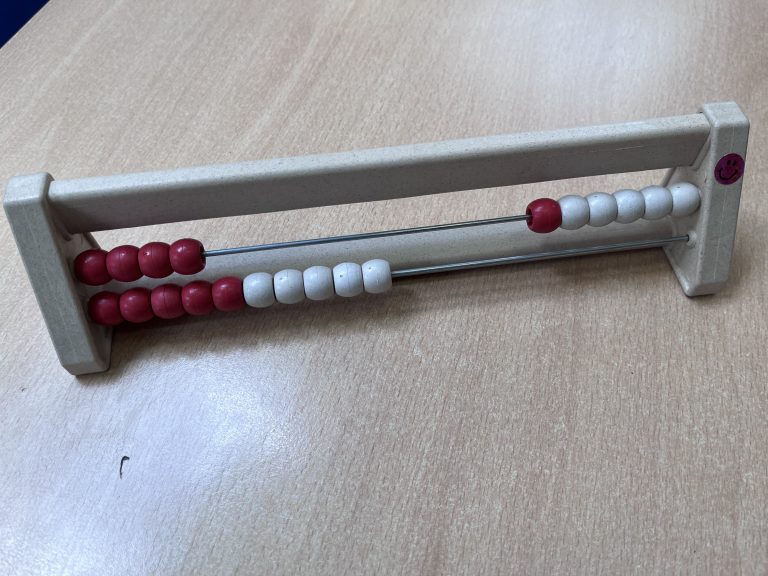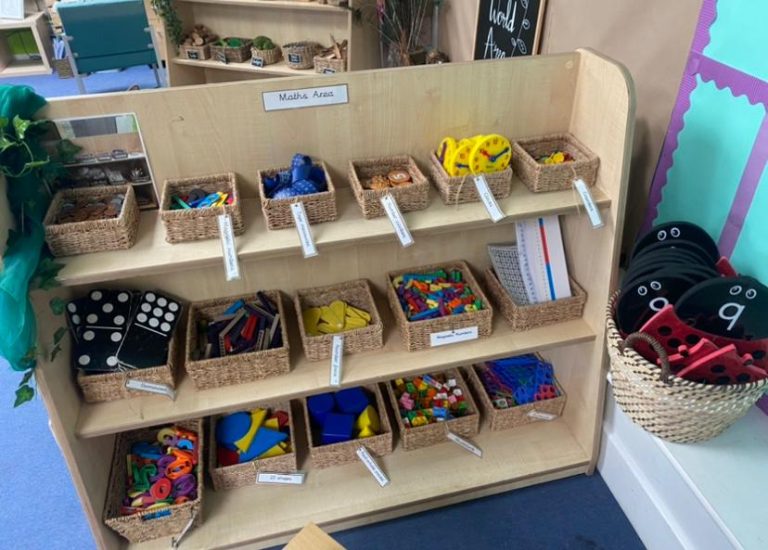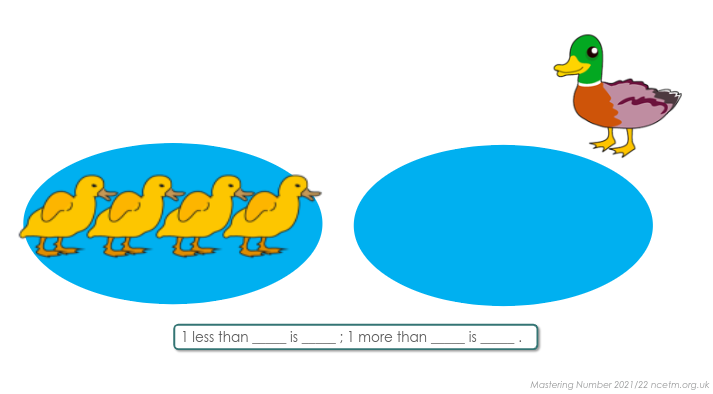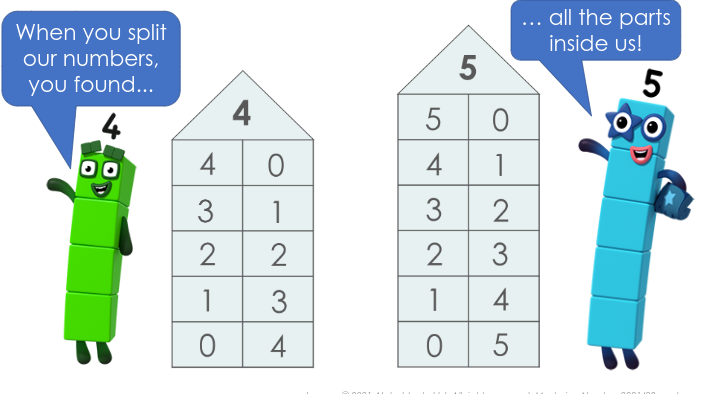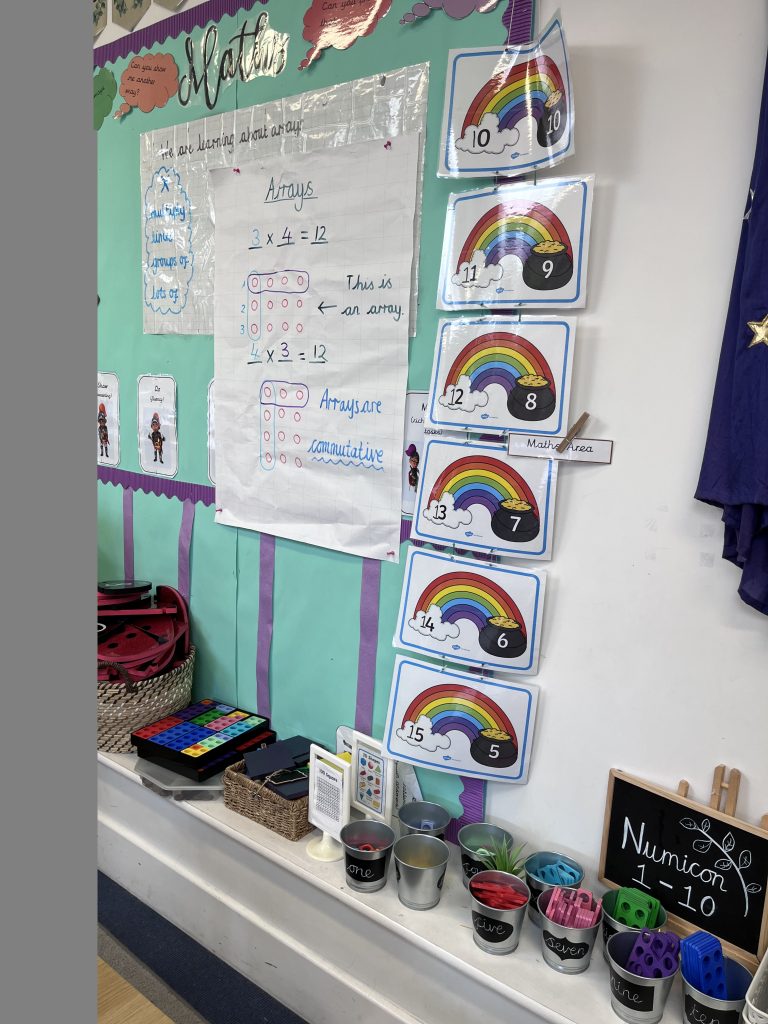For EYFS and KS1, Castle Hill implemented the Mastering Number programme – a programme designed and introduced by the National Centre for Excellence of Teaching in Mathematics (NCETM). This project aims to secure firm foundations in the development of good number sense for all children from Reception through to Year 1 and Year 2. The aim over time is that children will leave KS1 with fluency in calculation and a confidence and flexibility with number.
Our Approach
#389 Securing Number in EYFS/KS1 Through Mastering Number Sessions – Castle Hill Infant and Junior Schools
Jennifer Smith
What did we do?
Summary of impact
The Mastering Number project in EYFS and KS1 has created a consistency of daily practice for pupils at basic number skills at a separate time to their normal daily mathematics lessons. The teachers have seen pupils take part in the daily sessions enthusiastically and, in particular, the introduction of the Rekenrek (an ‘abacus-like’ manipulative) has supported the pupils in talking about number with increased confidence as well as their ability to subitise. Subitising is when you are able to look at a group of objects and realise how many there are without counting. The sentence structure used within the sessions has deepened their understanding of vocabulary and supported the pupils in talking about mathematics.
For Key Stage 2, the introduction of 1:1 tuition for pupils in Year 5 and 6 has allowed us to give precise and focused support to raise attainment. Through careful selection of pupils and detailed question level analysis ensured that pupils who took part had carefully selected lessons and tuition and regular assessments has shown progress greater than the wider cohort.
Learning Impact Discussions (LIDs) were held with groups of pupils to ascertain their understanding, enjoyment and progress of each of these programmes. These were held at various points during the year and helped us to shape each of these programmes.
Steps taken
Staff training was a big aspect of the implementation. For the Mastering Number project, a lead-teacher was designated from each year group (the school is 3 Form Entry) and this teacher supported the other teachers within their year group. Alongside this, training for TAs in specifically using the Rekenrek to support understanding of number and upskilling their knowledge and understanding of key skills such as subitising.
What would we do differently
One of the early Learning Impact Discussions where KS1 children were asked to demonstrate using the Rekenrek showed that pupils were not secure in setting up their Rekenrek the correct way around. This was a basic problem that meant that pupils were not able to complete the tasks accurately and teachers were using 2-3 minutes of each daily session making sure they were holding the Rekenrek correctly. Stickers were then placed upon the Rekenreks which supported the children to instantly hold the Rekenreks the right way. This has helped to maximise learning time and limit potential misconceptions.
Resources required
Staff training was a key focus for the Mastering Number programme – we used both internal training and external training providers alongside the training provided by the NCETM. Where possible, we completed TA training within the school day, though this has an impact on teaching assistants not being in class. For teachers, their training took place both within school time, PPA and after school with the lead teachers being the point of support for all teachers and TAs within that year group. The NCETM provided 60 Rekenreks, however we decided to use some of the funding to purchase additional Rekenreks so that they were available to all pupils in all classes from EYFS to Year 2.
Contacts
Jennifer Smith
Head of School and Maths Lead


